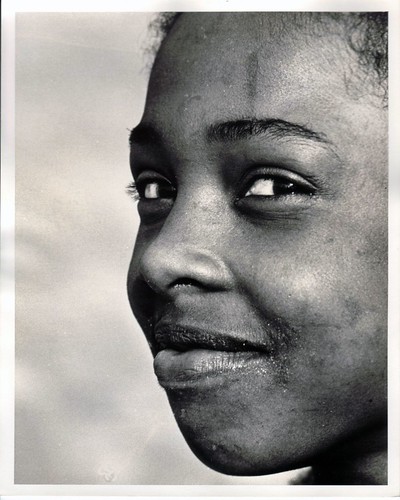
Part four of the 10 things I wish I knew before I landed in Australia
From time to time I write a post that is not specific to the African community but is more general and a lot more far reaching. Consider this one of those posts.
We begin with the age old question:
Who Are You, Really?
Who are you? What is your identity? How do you define yourself? There are numerous ways that you can answer this question. Considering that you are reading this in a website known as the Displaced African, you’re first reaction may be I am an African. You would be right. If you are living in a foreign country you may say I am an African Australian or I am a Kenyan Australian and you would also be right.
If you have a 9-5 you might tell me that you are a custodial services manager. Your friends may call you a janitor, but you know what, you are right. If you are a blogger like me, you may chose to define yourself as a a blogger or Lord of the blogosphere and well, you would also be right.
The Labels are Infinite
The fact of the matter is there are infinite ways and combinations of ways that you can define yourself. You can define yourself based on:
1) Where you live
2) What you do for a living
3) What you do in your spare time
4) Your religion or faith (or lack thereof)

5) Your sex
6) Your sexual orientation
7) Your friendship circle
8) etc etc etc
There’s Nothing Quite as Powerful As Knowing Who You Are
Usually once you have defined clearly who you are, half of your work is complete. If you are a Christian missionary then your life’s path is chosen; you shall spend the rest of your life preaching the gospel to people and will travel to the far ends of the Earth in order to do so.
If you are a millionaire playboy, then you’re life will be about the pursuit of women and money.
If you are an African, then for every single thing you will ever do for the rest of your life, you will always think about its effects on the continent and act accordingly.

This…..is absolutely fantastic! The best selling book in history says that without a vision we will perish, and ultimately for a lot of us, our vision of the future comes from how we define ourselves. Our identity and definition of ourselves gives us our values, beliefs, codes of conduct, social circles and friends. Our identity is our life.
The Dark Side of Identity
The dark side of identity comes when we feel that any part of our identity is under threat. Case in point is the current turmoil that is gripping Kenya. Now for those who may not be aware, a vast majority of the Kenyan people who live in the diaspora grew up in cosmopolitan, inter-tribal settings. It’s very rare to find people in the diaspora who did not spend extensive periods of time interacting with people from other tribes, whether it’s as a result of living in cities like Nairobi or going to mixed tribe schools.
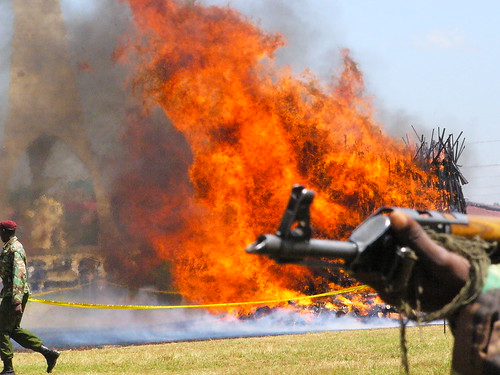
Then why is it, that after years of many of us growing up together not thinking much about our tribe that it all of a sudden matters. My belief is that it’s because we perceive that a certain part of our identity is under threat. Kikuyus feel threatened by other tribes and feel scared of losing their homes, their loved ones, their lives and their possesions and the same applies for the Luos, Kalenjins, Kisiis and the other 42 tribes of Kenya.
Now granted, people back home ARE attacking each other on the basis of tribe. What strikes me as odd is that majority of these tribal-hate rants that have spread through the Internet have been written by middle to upper-class Kenyans who have lived in cosmopolitan, blended societies for years if not decades. The battle that is taking place in Kenya right now is the poor killing the poor with a lot of the killing being on behalf of the ruling class.
Though things may change at any moment, the turmoil in Kenya has very little to do with the middle and the upper classes. That is why I think that the only reason that people in the middle and upper classes have taken the battle so personally is because all of a sudden a part of their identity that lay dormant for so long, their tribe, has all of a sudden been ignited by a perceived threat.
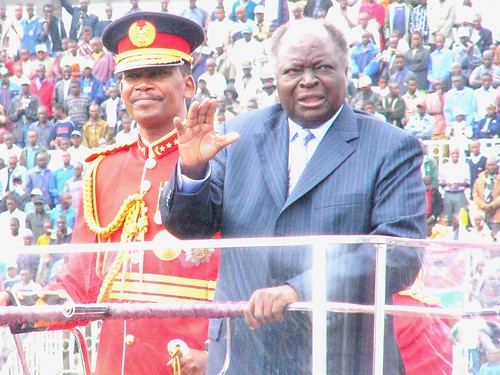
The Truth About Identity
I think the simple truth about identity is that in this day and age, the typical person, has very many roles. Take myself I can define myself as:
a) A Kenyan b) A Nairobi citizen c) An African d) An African in the diaspora e) A Kenyan in the diaspora f) An African Australian g) A Melbournian African h) A blogger i) An internet marketer j) A Christain h) A protestant i) A heterosexual j) A single heterosexual h) A man and on and on and on
The thing we must realize is that this world is so complex that there will always be a part of our identity that is under threat. My heterosexual status is under threat depending on how you look at it. My African identity is under threat depending on how you look at it.For those of you who know about Australian politics, my African Australian identity was recently under threat from the former government as are many of the other ways I chose to identify myself.
Keys to a A Strong Identity
There are a few of things that I think are important to do if we are to remain sane and maintain a balance between all of our various identities.
1) Realize that not all of the parts of our identity are important and chose the parts of your identity that are important: I think this key alone is probably as overlooked as it is important. I can define myself in so many ways that I can’t possibly give all of them the same weight and be as willing to defend all equally. If I did that, my life would be nothing but constant battles.
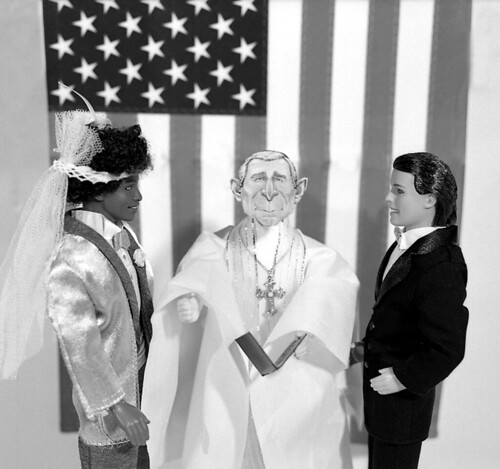
For example, personally, I don’t care about the whole issue of gay marriage. This isn’t out of homophobia or support for homosexual causes but it’s because it simply isn’t my issue. If you begin to talk to me about how my country is undergoing turmoil right now and solutions to that, the Kenyan in me is all years. If you want to talk to me about the World Trade Organization and the effects of subsidies upon the economies of Africa, the African in me is all years. Chose the parts of your identity that are the most important to you and focus on those and you will be happier in the long run: You will no longer have to jump from defending one part of your identity to the other all the time and you can concentrate your power around a few key areas of your identity that will bring about the greatest results and cause you the most joy and emotional richness.
And Of All The Commandments They Gave the Greatest Was Love
2) This one is for the people who chose to define themselves on the basis of their faith, religion or spirituality: Another key thing that is as overlooked as it is important. Why isn’t it that religions have ever competed with each other on the basis of who can love their neighbour more? The key principle of all religions and spiritual movements that I know is UNCONDITIONAL (i.e. it doesn’t matter if you’re black,white, Hindu, Jew, killer or a lamb) love, caring or respect for your fellow man. Why is it that when people feel their religion is under attack from people of an opposing faith they go against the very cornerstone principle that defines their faith; don’t they realize that in so doing they are spitting in the face of their beliefs? This tip is a difficult one to follow, but nothing of value is ever easy.
If you define yourself on the basis of your faith or religion and you feel it is under attack then as Martin Luther King said, “Overwhelm your enemy with your capacity for love,”
3) When your identity is under threat, be clear on who is threatening it. I won’t even bother explaining this one. I will ask one simple question: “Are all the Kenyan people who are attacking each other on the ground and throughout the web responsible for the mess that the continent is in?
To the people hurting each other: Will the displacement or the belittling of the people you attack bring about anything other than a temporary feeling of importance and significance? Be clear on who the threat is and act accordingly.
My hope is that this article has not been too abstract and that it has sparked some thinking, dialogue and debate. To all who have left comments and sent me words of support thank you. If you have something you want to add to this discussion then either leave a comment below or email me and let me know what’s on your mind. If you think that this article is worth sharing with others, then please click on the logo below labeled ‘Bookmark’. This allows you to share this article through social bookmarking sites all over the world. If you need help with that, again don’t hesitate to contact me at masmilele@thedisplacedafrican.com.
As always, be blessed and be a blessing unto others,
The Displaced African
Tags: African, African identity, African psychology, identity, psychology
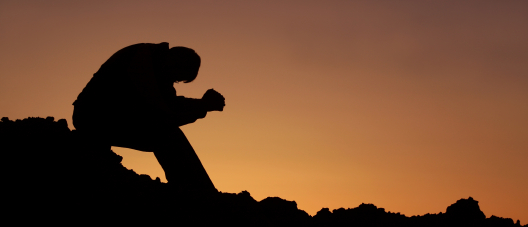
[…] 4) I am an African! An East African African! An East African Christian African! An East African, Kenyan… […]
I really like your blogs. You speak your mind which is very good. I was in US for some time last year for training. I can totally agree with you what u say here is the truth. Especiall those failure in Kenya who think they can make it in US… to their shock and disbelief end up becoming DJ and bring back nothing home after many years in foreign lands. all they bring is tweng like we care 🙁
I have bookmarked this site and I wish I could spread this articles in a Kenyan newspaper to educate mwananchi about the real issues
Hey msava: I am glad you enjoyed my blog and especially glad that you could relate and see the parallels in your own life. You can subscribe to the blog via email to make sure you stay up to date with the blog which is updated daily.
Interesting enough, two days ago I got interviewed by the Nairobi Star, so you never know you may see me in African newspapers all over the world very soon. Looking forward to seeing what you have to say about my other posts. 🙂
Great blog!! I love people’s stories, the ways they react to circumstances and the ideas it opens in their minds… I am South African busy with my thesis dissertation about the fading cultures of Africa. Actually I am designing a building(Architecture student) that will focus on preserving cultures through story creation that is culture specific. Based on Wycliffe Bible translators’ method of translating messages into discernible narratives. Its such an awesome method! check it out!